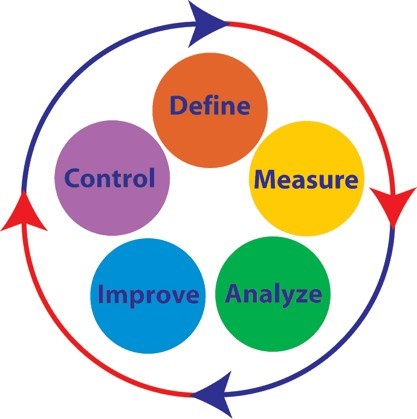
Continuous Improvement Framework
The City of Oshawa has developed a framework of continuous improvement over the past several years to improve efficiencies by reviewing services and programs using a variety of approaches to achieve strategic goals.
The City's Continuous Improvement Framework finds long-term sustainable solutions to ongoing budget challenges meanwhile ensuring we deliver affordable municipal programs and services efficiently.
The framework supports the Oshawa Strategic Plan and the Financial Strategy, which provide corporate strategic direction and aligns with business plans and budget processes that link resources to goals.
The framework includes four areas:
Lean Initiatives
Processes are streamlined, redundancies and waste eliminated and new opportunities identified to create value for the customer while tapping into front-line knowledge and experience. Lean initiatives work with service reviews, internal audits and risk management. Since 2014, 46 Lean initiatives have been completed.
The purpose is:
- the identification, reduction and elimination of suboptimal processes or waste (efficiency)
- deciding how to increase the value to the customer (effectiveness)
The City has formalized staff training in Lean methodology to have everyone trained throughout the organization. The City's training program focuses on three Six Sigma levels – Yellow Belt, Green Belt and Black Belt.
Service Reviews
Attention is given to “what” services the City provides and “how” they are provided while respecting the role of government, public interest, affordability and value for money. Staff at the City of Oshawa undergo service reviews to look for ways to improve programs and services. Service reviews complement and support Lean initiatives, internal audits and risk management.
Service reviews aim to increase efficiencies, cost avoidance, savings, improved customer service and/or increased internal capacity to identify priorities. Approximately 100 service reviews have been completed since 2013.
Internal Audit
Internal audits undertake evidence-based research to ensure efficient and effective service delivery, accountability, and consistent and clear policy direction. Internal audit works with Lean initiatives, service reviews and risk management. An internal audit goal is to help the City by ensuring proper controls, administrative oversight and risk management processes.
Internal audit is an independent activity that presents objective findings, makes recommendations for corrective measures to address deficiencies, limit costs to the City and identifies opportunities for continuous improvement. As audit recommendations are completed, staff work to implement recommendations. The outcomes are tracked and provided to Council.
Since 2015 the City has completed 28 internal audits across all departments.
Risk Management
A clearly defined Corporate Risk Management Policy and Procedure, helps the Corporate Leadership Team proactively identify, assess and manage risk. Risk management aligns with the City's Lean initiatives, service reviews and internal audits, and business planning, budgetary and strategic planning functions. The purpose is to provide a planned and consistent approach to reducing the impact and likelihood of an adverse event and increase the possibility and benefits of opportunities.
A Risk Management Policy and Procedure are being implemented at the corporate level by the Corporate Leadership Team. The Corporate Leadership Team assesses risks related to:
- Financial
- Human Resources
- Information Technology
- Failure to Comply with Applicable Law
- Administrative Oversight
- Security
- Climate Change

